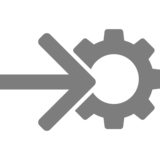HYDAC Diesel Protection: protect your fuel from the refinery to the engine
Diesel fuels with a high level of cleanliness increase your machines' efficiency and service life while protecting the environment. Especially in difficult operating conditions, such as in the mining industry, high-performance protection systems are required for the entire fuel circuit. As a reliable partner, HYDAC offers you innovative solutions for diesel filtration and dewatering and diesel bug prevention. Read on to find out more about our all-round protection for your fuel!
HYDAC Diesel Protection: all-round protection for your fuel
Would you like to find out more about our solutions for filtration, dewatering, and diesel bug prevention for your diesel fuel? Arrange a no-obligation consultation appointment with our experts now.
Increased requirements due to emission directives Strict emission limits increase the requirements placed on diesel fuels
With the Europe-wide Euro VI emission standards, the strictest emission limits to date apply to vehicles and mobile machines. The directives also influence the requirements placed on diesel fuels: suppliers are forced to ensure significantly less contamination and lower water content in their fuels. This doesn't just mean more work. It also means higher costs.
Increased use of biogenic diesel fuels & HVO fuels Biodiesel and HVO fuels require fluid conditioning at every stage in the transport chain
The increasing proportion of biogenic fuels and HVO fuels (Hydrotreated Vegetable Oil) also means that existing systems need to be retrofitted with diesel conditioning systems. To meet the requirements, it's not sufficient to only treat diesel immediately before use on the machine. From production in the refinery to the diesel filling station and on to the end consumer—the fuel must be filtered and dewatered at every stage of the transport chain.
What do we need to protect fuels from anyway?
Solid contamination accelerates engine wear
Contamination with solids can cause serious damage to engines by clogging injection nozzles, impairing combustion, and therefore increasing wear on engine components.
Continuous diesel fuel filtration ensures that these particles are effectively removed, making the engine work more efficiently and avoiding costly downtime.
Water causes corrosion in diesel circuits
The accumulation of water in diesel fuel can lead to serious disruptions in engine performance, such as loss of power and increased wear. Increased water content also accelerates corrosion of the metal components in the entire diesel circuit and encourages microbial contamination.
Effective and continuous water separation minimizes these risks, ensuring the longevity and reliability of diesel engines in vehicles and machines.
Diesel bug—the invisible danger
The consequences of diesel bug: microbially contaminated systems are less efficient. The filters need to be changed more regularly. The need for maintenance increases, which leads to unnecessary use of resources.
This is particularly relevant for the conditioning of fluids using fluid filters, e.g. fuel filters. The growth is usually caused by the ingress of water. The biofilm-forming bacteria create a slime-like film and colonize the fluid boundary layer between the water and fuel.
To put a stop to this and avoid costly downtimes, HYDAC offers you innovative solutions that dewater and filter the fuel at every stage of the process.
Prevent microbiological growth with our innovative filter element technology with triple protection
HYDAC Dieselmicron®: two-stage filtration for clean diesel
As a standard solution, the Dieselmicron® filter element offers contamination-independent water separation combined with excellent particle separation—made possible by the two-stage design. This is because fully synthetic filter media ensure high contamination retention capacities and continuous coalescence. In a second step, the enlarged water droplets are reliably separated by the hydrophobic barrier layer on the strainer tube.
HYDAC Biomicron®: The antimicrobial solution against diesel bug
Free water in tanks accelerates microbial growth of bacteria, fungi, and microorganisms. The filter element technology with triple protection developed by HYDAC can put a stop to this development. Based on the two-stage Dieselmicron® technology, our Biomicron® offers 3 benefits in 1: particle filtration, water separation, and protection against microbial growth. The Biomicron® technology interrupts cell metabolism and therefore prevents microbiological growth. The two-stage element structure has a coalescing effect and creates a hydrophobic barrier for water separation.
For optimum diesel fuel conditioning: learn more about our pre-filters & water separators with Biomicron® and Dieselmicron® element technology
HYDAC HDP High Tech with fully automatic dewatering
Reliable pre-filtration for your fuel: our HDP diesel filter protects vehicle manufacturers and operators from malfunctions, breakdowns, and expensive service calls. With the plug & play drain solution, it dewaters your fuel system fully automatically and independently of the operator during suction-side operation. Designed as an absorbent pre-filter, the HDP protects all pumps and components in the fuel system from water and contamination.
HYDAC HDP Best Cost with manual dewatering
The HYDAC Diesel PreCare cup filter system solution is also available as a cost-efficient component with a manual water drain in addition to the fully automatic version. A hand pump can also be integrated into the operator-dependent solution. This is located right on the pre-filter in the bypass. This means that no pressure loss is generated. Additional screw connections to install the hand pump separately in the suction line are not required.
HYDAC HDP Best Cost with an electric pump
In addition to water and solid impurities, air is another undesirable disruptive factor in systems. In contrast to conventional solutions, where the manual suction pump is located in the suction line and causes a considerable differential pressure, HYDAC offers a more elegant solution: with an integrated pump in the filter, you save time-consuming manual pumping while improving the engine's starting behavior.
HYDAC HDM Diesel Maincare
A high contamination retention capacity, compact size, and environmentally friendly disposal—the HDM cup filter system fulfills all these market requirements. It reliably filters your diesel and biofuel in the main flow. The HDM achieves cleanliness classes of 12/9/6 effortlessly, even when there are engine vibrations and load changes. In addition to the standard range, we develop custom main filter modules on request.
Tank Care: effective solutions against diesel bug
Tank systems, engine systems, and fuel systems in machines become contaminated due to the continuous flow of fuel—especially when they are subject to periods of inactivity, such as in the case of rental equipment, leasing fleets, seasonally used harvesting machines, or diesel-powered emergency generators. Both particulate solid contamination and water lead to sludge formation and biological growth, commonly known as diesel bug. This leads to a short filter service life for the engine's fuel filter and increased wear on the injection system. It's just a matter of time before the system fails. HYDAC's dewatering and filter solutions protect your fluid and prevent premature and, above all, costly disposal of your fuel.
Avoid costly downtimes with effective dewatering: discover our stationary and portable units
HYDAC dewatering unit LowViscosity Unit LVU-CD 10
The portable HYDAC LowViscosity Unit, which is particularly suitable for service operations, enables the removal of solid contamination and free water from up to 5,000 liters of diesel fuel thanks to two-stage filtration in bypass flow. Benefit from the flexible use of the adjustable transfer pumping function. Whether it's the standard or cost-effective economy version—reduce your risk of diesel bug with the HYDAC LVU-CD 10.
HYDAC dewatering unit LowViscosity Unit LVU-CD 40
Our HYDAC dewatering unit, designed for up to 20,000 liters of diesel fuel, is suitable for stationary installation in bypass flow or for use as a transfer unit. It features cost-effective, unlimited dewatering and therefore prevents internal corrosion on tanks, motors, and supply lines.
HYDAC dewatering unit LowViscosity Unit LVU-CD 600-8000
Especially in tanks that are rarely used, such as in emergency power generators in hospitals, in storage tanks, or in auxiliary systems on ships, water and diesel bug jeopardize the fuel. Avoid costly system failures with the LVU-CD 600-8000: the innovative dewatering unit offers you the option of independent fuel conditioning, which means that it reliably protects critical systems from downtime.
Diesel transfer filtration & dewatering between storage sites and at diesel filling stations
The cleanliness of the diesel must also be ensured between the storage sites or at diesel fuelling stations, and even during transfer to the engine. To achieve the best possible cleanliness, the diesel fuel flows through three stages—filtration for particle separation, dewatering via coalescence, and finally dewatering via separation. Our experts offer just the right solution for this: thanks to their clever design, our HYDAC systems are superb for safely removing large quantities of contamination from diesel—in just a single pass instead of in several time-consuming steps.
The best possible cleanliness in just a single pass with the HYDAC product range
HYDAC filtration solutions
The LVH-F housings for filtration are excellent for ensuring the required fuel cleanliness in accordance with ISO4406. This allows the diesel engine to be operated with minimum wear and efficiency losses. Thanks to the built-in Optimicron® ON-DF diesel filter elements, you can rely on constant filtration with a high contamination retention capacity for optimum efficiency.
HYDAC dewatering solutions
The LVH-CD housings can be flanged to the filter housings. This enables the fuel to be dewatered efficiently straight after the filtration process. The HYDAC Optimicron® diesel dewatering elements ON-DC and ON-DS feature high separation rates. They ensure consistently low water levels and therefore prevent biological growth and diesel bug.
HYDAC all-in-one diesel conditioning
With our harmonized system solutions, both particle filtration and the removal of water in diesel can be achieved in just a single pass. This doesn't just save time. It also reliably protects your systems against wear, performance loss, and corrosion.
Fuel monitoring for your diesel fuel
For high quality filtration and dewatering measures throughout the entire process chain: both the particulate solid contamination and the water saturation in your fuel must be continuously checked to keep diesel clean. Both of these can also be monitored in the best possible way with HYDAC measuring devices. Thanks to sophisticated technology, you can analyze the diesel's entire transport route in terms of the cleanliness values and water content values required and make them available online. This enables optimum transparency and recommendations for action to be derived that optimize your diesel conditioning. Contact our experts to learn more about our fuel monitoring systems now.
Cleaner diesel across the entire process chain: discover our product range now
Portable service unit HYDAC FluidControl Unit FCU 1000
The portable FluidControl Unit FCU 1000 is ideal for service work. It temporarily measures your fuel's solid contamination, water saturation, and fluid temperature and is ideal for diesel in accordance with DIN EN 590 and ASTM D975.
HYDAC ContaminationSensor Module CSM-E
For optimum fuel cleanliness measurements in accordance with ISO 4406: permanently integrated into the system, our compact and cost-effective online condition monitoring module is suitable for stationary use.
HYDAC is your partner for all-round protection of your diesel fuel Your advantages with HYDAC Diesel Protection
Diesel Protection FAQ
What is meant by diesel bug?
The term diesel bug refers to microbial contamination in diesel fuel and is a classic type of biofouling. Microorganisms grow on the surfaces and damage the materials. A slime-like film or flakes of various organisms, such as bacteria and fungi, are formed. The resulting biofilms grow on all surfaces and interfaces.
The filter surface becomes clogged with biofilm. The result: the differential pressure increases and the fuel becomes more corrosive. The growth on the interface between the water and the fuel increases when water enters the fuel system. A slime-like film of varying thickness forms. Biofilm-forming bacteria are the cause of the biofilm; they colonize the fluid boundary layer and draw nutrients from the fuel. Due to the biofilm, the organisms survive even under extreme environmental conditions, as it provides protection against mechanical stress. The film is often irregularly formed, resulting in aerobic and anaerobic zones. This creates a habitat for a wide variety of organisms and stimulates the exchange of genes between the bacteria. The colony quickly adapts to new conditions and becomes increasingly resistant to biocides. This means that bacteria in a biofilm are more viable and less sensitive to external stress. Diesel bug also increases the fuel's acid number and leads to a stronger corrosive attack on components.
How does diesel bug develop?
Diesel bug occurs when biofilm-forming bacteria adhere to a surface such as the surface of a filter element. This results in individual bacteria adhering to this surface. The driving forces behind this attraction between the bacteria are: Van der Waals forces, electrostatic attraction forces, the formation of hydrogen bonds, and other physicochemical processes. These forces are largely responsible for the formation and cohesion of a matrix structure. The formation of the matrix gives rise to the characteristic properties and typical appearance of a biofilm. For a stable matrix to form, biofilm-forming bacteria must colonize a surface. In a first step, this is done side by side across the entire area. The organisms only begin to grow on top of each other in several layers once they have colonized the surface.
Extracellular polymeric substances (EPS) are crucial for the cohesion of this multi-layered matrix. These are biopolymers that surround organisms. They have their origin in the organisms themselves, as they are metabolic products of bacteria or the remains of dead organisms. They are made up of polysaccharides, proteins, glycoproteins, glycolipids, extracellular DNA, and other nucleic acids. The biopolymers surround the individual bacterial cells and form a solid, three-dimensional, heterogeneous composite. This is what the biofilm is made of and what is perceived as slime. The biofilm holds the microorganisms together and enables them to securely adhere to a surface. This structure provides the organisms with excellent protection against external influences. Inside the EPS structure, only diffusion and convection processes take place to supply the bacterial cells with substrates. The heterogeneous structure enables convection flows. The EPS themselves also serve as sources of nitrogen, carbon, and phosphate. Despite all of this, a biofilm's depth is limited. This is because as the thickness of the film increases, there is a localized lack of oxygen or substrate. The consequences: the organisms die, causing parts of the biofilm to detach. Shear forces caused by fluid flows remove the upper layers. In the course of these processes, a balance is established between the growth and erosion of the biofilm.
What are diesel bug organisms?
Diesel bug organisms are environmental microbes that are found in water, air, and soil. Microorganisms have an exponentially high growth rate. Diesel bug progresses rapidly from the initial infection to damage to machines and fuel filters.
Typical diesel bug organisms are:
- Bacteria: Bacillus subtilis, Bacillus licheniformis, Pseudomonas aeruginosa
- Fungi: Hormoconis resinae
- Yeasts: Yarrowia tropicalis
How can diesel bug be identified?
You can use the following signs to identify diesel bug:
- Unpleasant, foul odor
- Cloudy fuel
- Discoloration of the fuel (yellow, green, brown)
- Slime-like sedimentation in the fuel
- Slime-like residues on filters
- Slime-like residues in fuel-carrying parts
What are the consequences of diesel bug?
The consequences of diesel bug are enormous when the fuel is used. It results in serious damage to metal components. Microorganisms dissolve or accelerate the corrosion of metals. The effects of this corrosion on metal container walls can be seen with the example of a fuel tank.
Material degradation in the metal causes localized indentations. This has consequences for the components that come into contact with the biofilm. Another problem is the acidification of the fuel due to the metabolic products of the microorganisms. These consist of acids and free radicals, which support the chemical processes of oxidation and hydrolysis in the fuel. This leads to the diesel's acidity rising to an unacceptable level within a few days. When biofouling occurs in fuel systems, the fuel lines and filters also become clogged.
The fact that filter clogging is not just a gradual process is problematic. There can also be acute filter clogging if the biomass in the fuel tank is sucked in. As a result, the flow rate decreases sharply and the differential pressure increases. The combustion engine is now no longer supplied with sufficient fuel. The result: the engine no longer starts or serious damage occurs to machine components during operation (e.g. cavitation damage in low and high pressure pumps). The free bacterial structures can lead to classic biofouling on the filter surface—with the same far-reaching consequences.
How can diesel bug be prevented?
HYDAC solutions for fuel filtration and dewatering can prevent diesel bug:
- Effective filtration:high-quality filters remove solid impurities and protect against particle contamination.
- Continuous water separation:HYDAC systems ensure effective and continuous water separation to prevent corrosion and microbial growth.
- Special filter elements:HYDAC Dieselmicron® and Biomicron® filter elements offer excellent particle separation and water separation as well as protection against microbial growth.
- Combined systems:all-in-one solutions from HYDAC enable simultaneous diesel filtration and dewatering in just a single pass.
These measures ensure clean diesel fuel and protect the systems from microbial growth and costly breakdowns.
Instructions for use
Please observe the instructions for use for our filter elements that are available in the download area!




